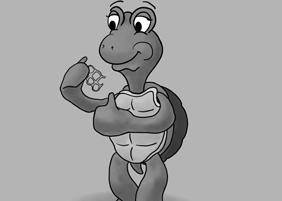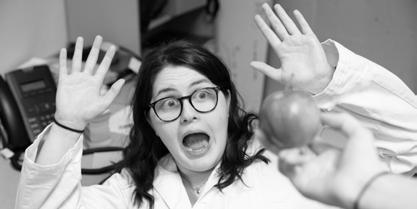
1 minute read
New research suggests plastic is actually good for sea turtles
from 29 March 2023
Elijah Zeewe, staff
Although human efforts to protect sea turtles and their natural habitats have been ongoing for decades, preliminary data from the Global Environmental Protection study (GEP) found that plastic waste may have nutritional benefits in the formerly endangered aquatic species.
According to April O’Neil, U of M environmental science professor and lead researcher of the GEP study, consumption of plastic debris by a population of Atlantic leatherback sea turtles has contributed to the population’s recovery and surge.
Despite variations in diet among the different sea turtle species, leatherback sea turtles situated along the coast of the Atlantic Ocean were able to progressively transition from an entirely herbivorous diet to a non-decomposable diet.
The species feeds in shallow coastal habitats, making plastic debris easily accessible for consumption.
O’Neil explained that the unevenly serrated lower jaws of the species have rapidly adapted to this rigorous diet.

Currently, leatherback sea turtles constitute the largest living turtles in the world and consume marine plastic approximately the size of their own body weight on a daily basis.
The next phase of the GEP study is to determine how plastic consumption has facilitated the significant recovery and growth of the leatherback species.
O’Neil has yet to determine the exact mechanism, but she has a few theories.
“Plastic is everywhere,” she said. “It doesn’t go anywhere. I think the turtles realized that and had a change in mindset. They decided to face the enemy head-on.”
“It’s all psychological,” she continued. “When society puts you in this tiny box and portrays you as vulnerable, you realize you are not broken, and you do not need to be saved by anyone but yourself.”
Ultimately, this shows the resilience of nature, and how even the most detri- mental human behaviours can positively affect our ecosystems.
O’Neil and other environmental researchers have begun to emphasize the importance of increased pollution and urged the general public to commit to increasing plastic waste, to test the limits of how far nature can adapt to our everchanging environment.
“I’m just glad the truth is finally revealed,” O’Neil said. “Recycling is a sham and paper straws are the bane of my existence anyways.” ivorybuffalo@themanitoban.com never kept our doctors away from anybody.”
Al-Tufaha’s team found preliminary data suggesting that equestrian veterinarians horse doctors have a very low frequency of genes associated with ASS.
However, it is possible that this is just because veterinarians are not considered medical professionals.
Al-Tufaha hopes her research will save millions of doctors the humiliation of being bested by a fruit. ivorybuffalo@themanitoban.com
“Making it through med school and residency just to be defeated by an apple is ridiculous,” she said.







